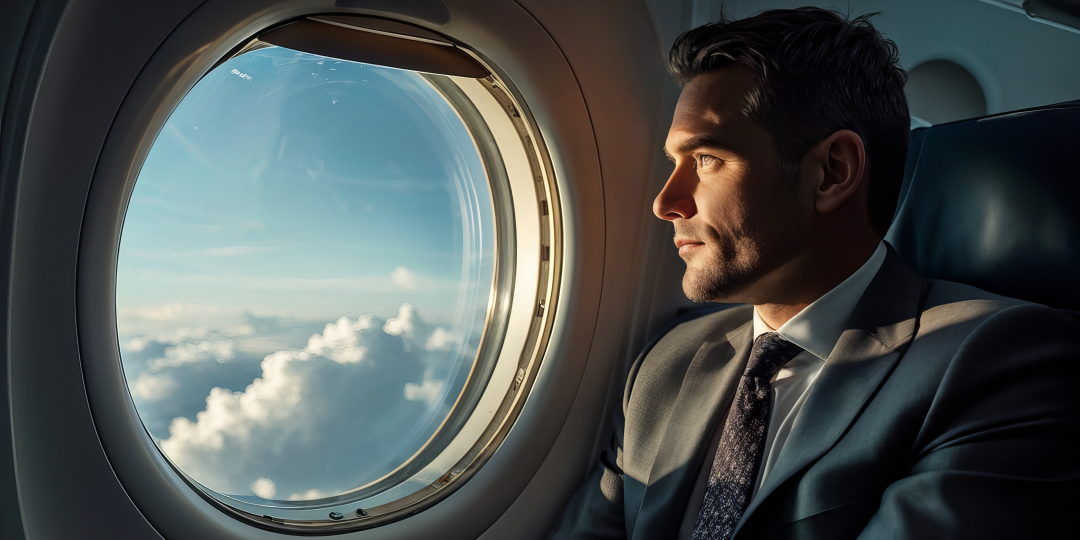In 2024, South Africa’s business travel sector surged ahead, driven by a renewed focus on face-to-face engagement and strategic market growth.
Despite economic pressures and rising travel costs, companies prioritised building relationships and seizing international opportunities, according to industry insiders.
This momentum sets the stage for an ambitious 2025 as businesses balance expansion with innovative cost-saving strategies and a commitment to sustainability.
Insights from the Business Travel Barometer White Paper by FCM and the Global Business Travel Association’s (GBTA) recent research poll illustrate how businesses are navigating economic challenges while setting bold goals for 2025.
Spend on the rise
Business travel spend surged in 2024, with flight expenditure up by 53%, according to FCM’s report. Ticket volumes increased by 54%, even as average ticket prices climbed.
Bonnie Smith, GM of FCM and Corporate Traveller South Africa, highlights the enduring value of in-person interactions.
“This increase in travel and spending reflects how critical in-person meetings and relationship building remain. South African companies are navigating cost pressures to seize new opportunities in global and regional markets – something virtual interactions cannot replicate.”
While companies are leveraging tools such as loyalty programmes and corporate fare deals to manage expenses, they are also reevaluating travel class preferences.
FCM’s report shows that economy-class bookings rose by 64%, aligning with a 2,6% price increase, making it a cost-effective choice for frequent trips. Premium economy saw a 100,2% jump in prices, signalling increased demand for comfort on longer, strategic trips.
Continued rise of bleisure travel
A noteworthy trend in 2024 has been the continued growth of ‘bleisure’ travel – combining business trips with leisure.
FCM and Corporate Traveller report that 75% of its customers now incorporate leisure into business trips, with longer durations becoming the norm.
This trend reflected employees’ desire for work-life balance and companies’ recognition of its value for retention and satisfaction, Smith noted.
Tech and sustainability strategic pillars
The role of technology, particularly AI, is set to redefine the business travel landscape. AI’s applications range from personalised itineraries to automated expense tracking and enhanced risk management.
“AI is transforming the travel experience. It’s helping us solve existing challenges while unlocking entirely new ways to enhance productivity and traveller satisfaction,” says Smith.
Sustainability also takes centre stage, with companies increasingly seeking greener travel options. From reducing trip frequencies to opting for energy-efficient transportation, travel managers are finding innovative ways to align business objectives with environmental responsibility.
“Corporates are focusing on less frequent but longer trips to reduce the number of flights. We are certainly seeing growth in corporate clients' requests for sustainability reports, carbon emissions reports and requests for trains instead of planes,” Stefan van der Merwe, CEO of Sure Travel, told Travel News.
Navigating NDC
NDC has been a double-edged sword for the industry.
Franz Von Wielligh, Head of Innovation and Member Support at XL Travel, says: “NDC has brought both challenges and opportunities for XL Travel. On the positive side, it enables richer content, dynamic pricing, and better customisation for clients.
“However, challenges include integration issues with legacy systems and varying adoption levels among airlines and agents alike. XL Travel has been actively engaging with technology partners to ensure a seamless transition and capitalise on NDC’s potential,” Von Wielligh told Travel News.
Optimism for 2025
The global sentiment, as captured by GBTA, is overwhelmingly optimistic.
Its poll of almost 900 business travel professionals worldwide shows that 86% of travel buyers and suppliers reported that business travel in 2024 had met or exceeded expectations.
Looking ahead, 67% anticipate growth in 2025, with businesses prioritising travel for customer-facing meetings, conferences and internal collaboration.
FCM’s global report aligns with this trend, revealing that 42% of its customers plan to increase travel budgets in FY25 and 40% anticipate higher travel volumes.
Similarly, Van der Merwe anticipates steady single-digit growth for South African outbound business travel, particularly in the training and events sectors.
However, economic pressures remain a concern. Rising travel costs, exchange rate fluctuations and geopolitical uncertainties were factors influencing budget allocations, Smith told Travel News.














